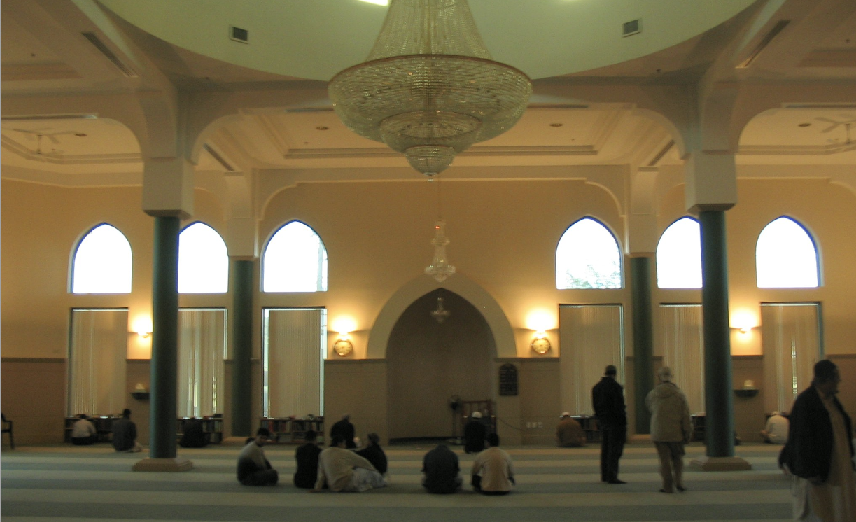Answered by Shaykh Yūsuf Badāt
Question:
Is it permissible, in Islām, to sell a masjid (mosque) or a masjid property? If this is unlawful in Islam and a masjid committee has sold a masjid property, what are they to do now?
Answer:
In the Name of Allāh, Most Merciful, Most Kind
Thank you/ Jazāk Allāh Khayr for contacting Mathābah Institute for your query.
It is islamicaly forbidden and impermissible for anyone to sell a masjid, a masjid owned property or any waqf (endowed) property. – (See: Rad Al-Muḥtār, Vol 4, Page 351, Dār Al-Fikr[1], Al-Fatāwa Al-Hindīyyah, Vol 2, Page 463, Dār Al-Fikr[2], Al-Bināyah Sharḥ Al-Hidāyah, Vol 7, Page 442, Dār Al-Kutub Al-‘Ilmīyyah[3])
This is the same ruling declared by Muftī ‘Abd Al-Raḥīm Lachpūrī in Fatāwā Raḥīmīyyah, Shaykh Ashraf ‘Alī Thānwī in Imdād Al-Fatāwā and Muftī Maḥmūd Al-Ḥasan in Fatāwā Maḥmūdiyyah.
If a masjid management has made the islamicaly erroneous transaction of selling a masjid waqf related property, they must undo the transaction and reinstate the property as waqf. If it is absolutely legally impossible [due to country laws] to do so, they must use the acquired funds from the sale to purchase a new property and establish a masjid or waqf related service there. – (See Fatāwā Dār Al-‘Ulūm Zakarīyyah Vol 1, Page 797)
وَأَنَّ الْمَسَاجِدَ لِلَّهِ – سورة الجن ١٨
“The Masājid belong exclusively to Allāh” – (Qur’an 72:18)
“During the lifetime of the Prophet Muḥammad (peace and blessings be upon him), ‘Omar (may Allāh be pleased with him) gave in charity some of his property, a garden of date-palms called Thamgh. `Omar declared, “O Allāh’s Messenger! I have some property which I prize highly and I want to give it in charity.” The Prophet instructed, “Give it in charity [as an endowment] with its land and trees, on the condition that the land and trees will neither be sold nor given as a present, nor bequeathed, but the fruits are to be spent in charity.” So ‘Omar gave it in charity, and it was dedicated for Allāh’s sake, to free slaves, to feed the poor, to serve guests, for travellers, and to assist kinsmen. The person acting as its administrator could eat from it reasonably and fairly [with the condition that they have no other income], and could let a friend of his eat from it provided they had no intention of becoming wealthy by its means [through abusive use].” – (Ṣaḥīḥ Bukhārī 2764)[4]
And Allāh Knows Best
[1] فَإِذَا تَمَّ وَلَزِمَ لَا يُمَلَّكُ وَلَا يُمْلَكُ وَلَا يُعَارُ وَلَا يُرْهَنُ أَيْ لَا يَكُونُ مَمْلُوكًا لِصَاحِبِهِ وَلَا يُمَلَّكُ أَيْ لَا يَقْبَلُ التَّمْلِيكَ لِغَيْرِهِ بِالْبَيْعِ وَنَحْوِهِ لِاسْتِحَالَةِ تَمْلِيكِ الْخَارِجِ عَنْ مِلْكِهِ – كتاب الدر المختار وحاشية ابن عابدين رد المحتار ج٤/ ص٣٥١ دار الفكر
[2] وَفِي الْفَتَاوَى النَّسَفِيَّةِ سُئِلَ عَنْ أَهْلِ الْمَحَلَّةِ بَاعُوا وَقْفَ الْمَسْجِدِ لِأَجْلِ عِمَارَةِ الْمَسْجِدِ قَالَ لَا يَجُوزُ بِأَمْرِ الْقَاضِي وَغَيْرِهِ كَذَا فِي الذَّخِيرَةِ – كتاب الفتاوى الهندية ج٢/ ص٤٦٣ دار الفكر
[3] وإذا صح الوقف لم يجز بيعه ولا تمليكه – كتاب البناية شرح الهداية ج٧/ ص٤٤٢ دار الكتب العلمية
[4] عَنِ ابْنِ عُمَرَ رضى الله عنهما أَنَّ عُمَرَ تَصَدَّقَ بِمَالٍ لَهُ عَلَى عَهْدِ رَسُولِ اللَّهِ صلى الله عليه وسلم وَكَانَ يُقَالُ لَهُ ثَمْغٌ وَكَانَ نَخْلاً فَقَالَ عُمَرُ يَا رَسُولَ اللَّهِ إِنِّي اسْتَفَدْتُ مَالاً وَهُوَ عِنْدِي نَفِيسٌ فَأَرَدْتُ أَنْ أَتَصَدَّقَ بِهِ فَقَالَ النَّبِيُّ صلى الله عليه وسلم تَصَدَّقْ بِأَصْلِهِ لاَ يُبَاعُ وَلاَ يُوهَبُ وَلاَ يُورَثُ وَلَكِنْ يُنْفَقُ ثَمَرُهُ فَتَصَدَّقَ بِهِ عُمَرُ فَصَدَقَتُهُ ذَلِكَ فِي سَبِيلِ اللَّهِ وَفِي الرِّقَابِ وَالْمَسَاكِينِ وَالضَّيْفِ وَابْنِ السَّبِيلِ وَلِذِي الْقُرْبَى وَلاَ جُنَاحَ عَلَى مَنْ وَلِيَهُ أَنْ يَأْكُلَ مِنْهُ بِالْمَعْرُوفِ أَوْ يُوكِلَ صَدِيقَهُ غَيْرَ مُتَمَوِّلٍ بِهِ – اخرجه البخاري ٢٧٦٤




